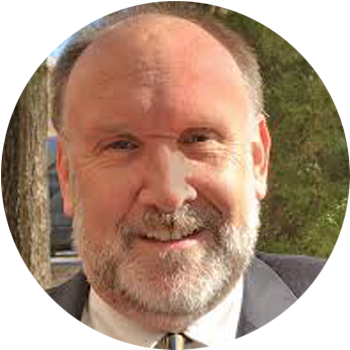Effective Expert Testimony
Presented by: Randy Otto, PhD, ABPP
March 5, 2026 | 9:00 AM - 5:00 PM Pacific
8 Hours | 7 CEs
 Randy Otto, PhD, ABPP, presents a live virtual professional training program on Effective Expert Testimony.
Randy Otto, PhD, ABPP, presents a live virtual professional training program on Effective Expert Testimony.
This badge-earning program can be shared digitally on platforms like LinkedIn or your resume and counts towards various certificates. Enroll to earn credit and share your new digital credentials with prospective employers and colleagues. This program counts as a foundational program in the certificates:
This program should be of interest to all mental health professionals who testify in legal proceedings, regardless of their discipline (e.g., medicine, social work, psychology) or sub-specialty (e.g., criminal, personal injury, disability, guardianship/conservatorship, dependency, custody). The focus of this program is on oral communication of one’s activities and opinions. Thus, preparation of interrogatories, affidavits, and reports is not addressed.
After a review of the research examining the critical components of effective expert testimony, two tools that can be used to gauge a witness’s efficacy are introduced, discussed, and employed. Next addressed are the two primary contexts in which expert witnesses testify (depositions and trials/hearings), their similarities, and differences.
Considerable attention is devoted to nuts-and-bolts strategies that witnesses can employ on the witness stand, followed by a discussion of direct and cross-examination techniques and strategies that attorneys often employ, as well as potential responses that witnesses can use.
Throughout the program, how professional ethics, practice guidelines, and rules of evidence and procedure shape expert testimony is addressed. Considerable use is made of case examples, using excerpts from trial and deposition transcripts and video recordings of experts testifying.
Upon completion of this training, participants will be able to:
Key topics covered in this training include:
Program Overview
Foundations of Effective Testimony
Testimony Settings
Practical Strategies for the Stand
Ethical and Legal Framework
Case-Based Learning

Palo Alto University, Continuing & Professional Studies (CONCEPT) is approved by, recognized by, or maintains sponsorship/ provider status with the following boards and agencies. We maintain responsibility for all content in our CE/CPD programs. For more information, visit here.
American Psychological Association (APA): Approved sponsor of continuing education for psychologists.
Association of Social Work Boards (ASWB): Approved continuing education provider (ACE program, Provider #1480), 11/22/2023–11/22/2026.
Canadian Psychological Association (CPA): Approved to sponsor continuing education for psychologists.
National Board for Certified Counselors (NBCC): Approved Continuing Education Provider (ACEP No. 7190).
Palo Alto University, Continuing and Professional Studies (CONCEPT) is approved by the American Psychological Association to sponsor continuing education for psychologists. Palo Alto University, Continuing and Professional Studies (CONCEPT) maintains responsibility for this program and its content. Palo Alto University, Continuing and Professional Studies (CONCEPT) is approved by the Canadian Psychological Association to offer continuing education for psychologists. Palo Alto University, Continuing and Professional Studies (CONCEPT), SW CPE is recognized by the New York State Education Department’s State Board for Social Work as an approved provider of continuing education for licensed social workers #SW-0356 and the New York State Education Department’s State Board for Mental Health Practitioners as an approved provider of continuing education for licensed mental health counselors. #MHC-0073. Palo Alto University, Continuing and Professional Studies (CONCEPT) has been approved by NBCC as an Approved Continuing Education Provider, ACEP No. 6811. Programs that do not qualify for NBCC credit are clearly identified. CONCEPT Professional Training, #1480, is approved to offer social work continuing education by the Association of Social Work Boards (ASWB) Approved Continuing Education (ACE) program. Organizations, not individual courses, are approved as ACE providers. State and provincial regulatory boards have the final authority to determine whether an individual course may be accepted for continuing education credit. CONCEPT Professional Training maintains responsibility for this course. ACE provider approval period: 11/22/23-11/22/26. Social workers completing this course receive (clinical or social work ethics) continuing education credits.